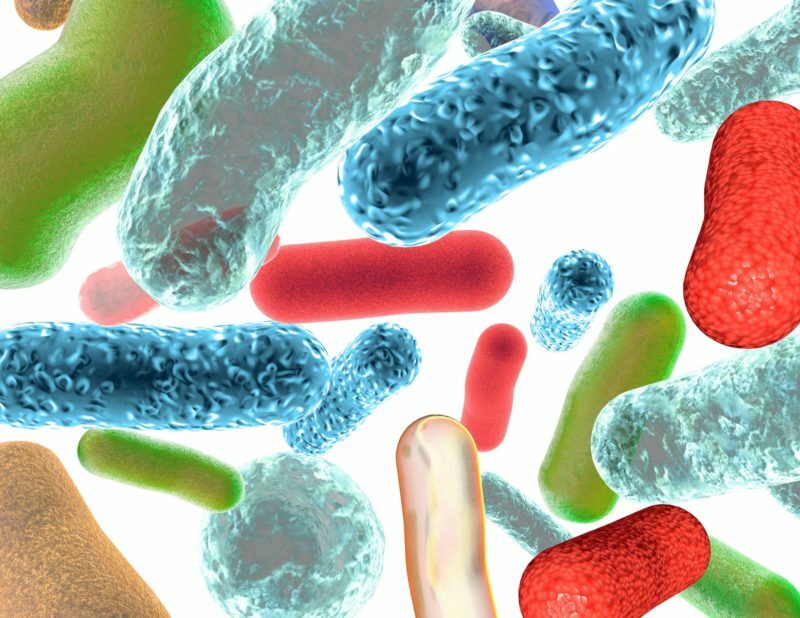
Quicklinks
WholeFoods Magazine
Healthy Gut, Healthy Immunity…Here’s Why!

When you think of “gut health,” what comes to mind? For most of us, we think about having great digestion, absorbing all the best nutrients from our food to stay energized, and avoiding issues like constipation, bloating, and gas.
While these are all important functions of the gut, they only make up one aspect of the bigger role the gut plays in our whole-body health. Aside from digestion, the gut is also responsible for functions as wide and varied as keeping the skin clear, balancing our moods, and, most importantly, protecting our immune system.
The gut’s microbiome is an essential aspect of the immune system. This microbiome is an ecosystem of helpful microorganisms (like bacteria, microbes, and fungi) that live inside the gut. We tend to think of bacteria as harmful to our health, but most of these organisms are beneficial—and sometimes even necessary—to our health (2).
When it comes to immune health, the gut microbiome stimulates the immune system’s response to pathogenic stimuli, produces antibodies, and moderates inflammation(3). Through direct interactions with immune cells and regulatory pathways, the microbiome and immune system work together in a protective alliance to keep the body strong.
Unfortunately, the gut can easily become imbalanced through the overuse of antibiotics, diet choices, stress, and other lifestyle factors. This can lead to gut dysbiosis and a weakened immune system. But, we can also restore our immune function by nurturing and repairing the gut microbiome(3).
The link between stress, sleep, and the gut comes from the gut-brain connection, or the enteric nervous system. Here, the gut and brain share messages and information that impact each other. Studies show that stress can negatively impact the gut by reducing healthy bacteria and increasing intestinal inflammation (12). Similarly, poor gut health can cause neurological changes that lead to increased stress and mood imbalances.
When healthy, however, the gut produces short-chain fatty acids (SCFAs) which protect the permeability of the gut, prevents inflammation, and support the microbiome—and the mind(13).
REFERENCES
While these are all important functions of the gut, they only make up one aspect of the bigger role the gut plays in our whole-body health. Aside from digestion, the gut is also responsible for functions as wide and varied as keeping the skin clear, balancing our moods, and, most importantly, protecting our immune system.
You’ve Got Guts: How the Gut Supports a Healthy Immune System
The gut contains an intricate web of neural connections, messengers (like neurotransmitters and hormones), and a significant proportion of our body’s immune cells. In fact, over 70% of the body’s immune system lives right in the gut (1).The gut’s microbiome is an essential aspect of the immune system. This microbiome is an ecosystem of helpful microorganisms (like bacteria, microbes, and fungi) that live inside the gut. We tend to think of bacteria as harmful to our health, but most of these organisms are beneficial—and sometimes even necessary—to our health (2).
When it comes to immune health, the gut microbiome stimulates the immune system’s response to pathogenic stimuli, produces antibodies, and moderates inflammation(3). Through direct interactions with immune cells and regulatory pathways, the microbiome and immune system work together in a protective alliance to keep the body strong.
Unfortunately, the gut can easily become imbalanced through the overuse of antibiotics, diet choices, stress, and other lifestyle factors. This can lead to gut dysbiosis and a weakened immune system. But, we can also restore our immune function by nurturing and repairing the gut microbiome(3).
Natural Ways to Improve Your Gut Health and Immunity
The first step to a stronger immune system is a healthy gut. Here are three simple ways we can support the gut’s healthy microbiome and encourage a strong immune system.- Eat a diet that supports the microbiome. Diet is one of the most powerful ways to either make or break your gut health. While studies show that diet can cause harmful dysbiosis in the gut and lead to inflammation and autoimmune disorders, diet can also reverse gut damage to rebuild the microbiota (4). Focus on eating an immune-supporting diet like an anti-inflammatory diet and avoiding major culprits in gut dysbiosis (like refined sugar). Adding foods rich in probiotics and prebiotics to your daily meals can greatly help to replenish healthy gut bacteria and improve your gut and immune function (5). Studies show that probiotics can regulate both innate and adaptive immune responses. They do this by stimulating and moderating the functions of immune cells like macrophages and T and B lymphocytes, as well as reducing the effects of inflammatory cytokines (6). You can find probiotics and prebiotics naturally in foods like sauerkraut, miso, kimchi, natural yogurts, bananas, artichokes, and avocados.
- Supplement with evidence-based vitamins and herbs. Sometimes we need a boost to get our gut health (and immune health) on track. These are a few of the most beneficial and science-backed herbs and vitamins that support overall gut health:
-
- Astragalus Astragalus is an herb that is mostly known for improving energy and general vitality. Studies show that it may also have positive effects on the composition of bacteria in the gut, specifically working to help increase the microbial diversity and richness of many helpful bacteria species in the gut (7).
- Black Elderberry Studies show that black elderberry can help improve gut health by supporting key gut bacteria. Black elderberry is rich in an antioxidant compound called anthocyanin. This compound has been shown to reduce neuroinflammation in the gut-brain-axis, as well as support healthy gut bacteria (8).
- Vitamin D The current research suggests a close correlation between vitamin D deficiency and autoimmune disorders. Scientists believe that this could be due to vitamin D’s beneficial effect on the gut microbiota. When abundant, vitamin D supports the gut bacteria, which then form a strong protective barrier in the gut. Without enough vitamin D, the bacteria fail to protect the barrier and it becomes permeable, thus allowing more pathogenic invasions and autoimmune flares (9).
- Vitamin C Vitamin C is famous for being an immune-boosting vitamin, but it also helps protect gut health. Animal studies have shown that antioxidants including vitamin C help to maintain a healthy gut balance by reducing harmful bacteria (such as coli) and supporting the beneficial bacteria (like Lactobacillus and Bifidobacterium) (10).
- Zinc Studies show that zinc supplementation can improve the balance of gut microbiota and support the gut epithelium (11). This helps to reduce harmful inflammation in the gut and support the immune cells of the digestive tract.
The link between stress, sleep, and the gut comes from the gut-brain connection, or the enteric nervous system. Here, the gut and brain share messages and information that impact each other. Studies show that stress can negatively impact the gut by reducing healthy bacteria and increasing intestinal inflammation (12). Similarly, poor gut health can cause neurological changes that lead to increased stress and mood imbalances.
When healthy, however, the gut produces short-chain fatty acids (SCFAs) which protect the permeability of the gut, prevents inflammation, and support the microbiome—and the mind(13).
Support Your Gut, Support Your Health
The gut is so much more than a digestive factory—it is home to the trillions of microorganisms that help your body function properly and a major aspect of your body’s defense system. For a strong and resilient immune system, lay the foundation for a thriving microbiome.REFERENCES
- Vighi, G et al. “Allergy and the gastrointestinal system.” Clinical and experimental immunology 153 Suppl 1,Suppl 1 (2008): 3-6. doi:10.1111/j.1365-2249.2008.03713.x
- Quigley, Eamonn M M. “Gut bacteria in health and disease.” Gastroenterology & hepatology 9,9 (2013): 560-9.
- Belkaid, Yasmine, and Timothy W Hand. “Role of the microbiota in immunity and inflammation.” Cell 157,1 (2014): 121-41. doi:10.1016/j.cell.2014.03.011
- Brown, Kirsty et al. “Diet-induced dysbiosis of the intestinal microbiota and the effects on immunity and disease.” Nutrients 4,8 (2012): 1095-119. doi:10.3390/nu4081095
- Chmielewska, Anna, and Hania Szajewska. “Systematic review of randomised controlled trials: probiotics for functional constipation.” World journal of gastroenterology 16,1 (2010): 69-75. doi:10.3748/wjg.v16.i1.69
- Yan, Fang, and D B Polk. “Probiotics and immune health.” Current opinion in gastroenterology 27,6 (2011): 496-501. doi:10.1097/MOG.0b013e32834baa4d
- Li, Xin-Yu et al. “Astragalusalters gut-microbiota composition in type 2 diabetes mice: clues to its pharmacology.” Diabetes, metabolic syndrome and obesity : targets and therapy 12 771-778. 17 May. 2019, doi:10.2147/DMSO.S203239
- Blesso, Christopher N. “Dietary Anthocyanins and Human Health.” Nutrients 11,9 2107. 5 Sep. 2019, doi:10.3390/nu11092107
- Yamamoto, Erin A, and Trine N Jørgensen. “Relationships Between Vitamin D, Gut Microbiome, and Systemic Autoimmunity.” Frontiers in immunology 10 3141. 21 Jan. 2020, doi:10.3389/fimmu.2019.03141
- Yang, Qi et al. “Role of Dietary Nutrients in the Modulation of Gut Microbiota: A Narrative Review.” Nutrients 12,2 381. 31 Jan. 2020, doi:10.3390/nu12020381
- Usama U, Khan MJ, Fatima S (2018) Role of Zinc in Shaping the Gut Microbiome; Proposed Mechanisms and Evidence from the Literature. J Gastrointest Dig Syst 8: 548. DOI: 4172/2161-069X.1000548
- Bridgewater, L.C., Zhang, C., Wu, Y. et al.Gender-based differences in host behavior and gut microbiota composition in response to high fat diet and stress in a mouse model. Sci Rep 7, 10776 (2017). https://doi.org/10.1038/s41598-017-11069-4
- Van de Wouw M, Boehme M, Lyte JM, Wiley N, Strain C, O'Sullivan O, Clarke G, Stanton C, Dinan TG, Cryan JF. Short-chain fatty acids: microbial metabolites that alleviate stress-induced brain-gut axis alterations. J Physiol. 2018 Oct;596(20):4923-4944. doi: 10.1113/JP276431. Epub 2018 Aug 28. PMID: 30066368; PMCID: PMC6187046.








